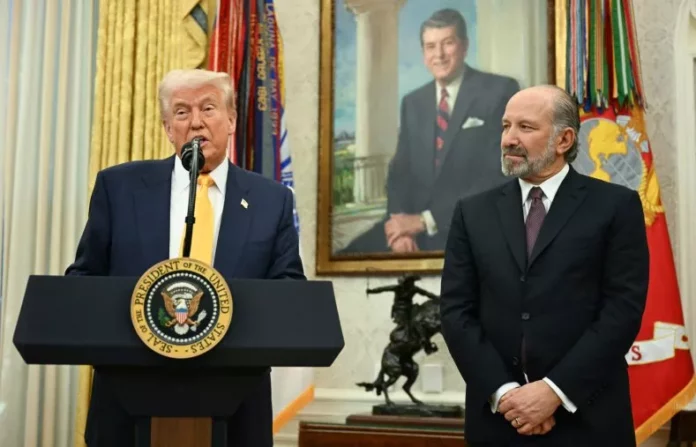
Liberation Highlights:
- Trump administration announces the launch of the External Revenue Service aimed at tariff collection, paving the way for abolishing the Internal Revenue Service (IRS).
- Many Americans delay filing taxes, hopeful that Trump’s April 2 “Liberation Day” announcement could signal relief ahead of the April 15 tax deadline.
- Economists and critics debate the practicality and impact of shifting revenue collection from domestic taxation to international tariffs.
By Samuel Lopez – USA Herald
As the April 15 tax deadline looms over American households, anticipation builds around President Donald Trump’s latest financial initiative—the External Revenue Service (ERS). Scheduled to officially launch around Trump’s proclaimed “Liberation Day” on April 2, this new agency represents a monumental shift in tax strategy, promising to collect tariffs from foreign entities, thus potentially reducing or even eliminating the tax burden traditionally shouldered by U.S. citizens.
Commerce Secretary Howard Lutnick, during a recent cabinet meeting, emphasized the significance of the upcoming date, describing it as “the day when the rest of the world starts to treat America with respect.” Lutnick’s enthusiasm underscores the Trump administration’s broader strategy of economic nationalism and protectionism, wherein the ERS plays a pivotal role.
The term “Liberation Day,” coined by Trump, has resonated strongly with Americans fatigued by an increasingly burdensome tax system that has been frequently criticized for waste, fraud, and abuse. Trump’s supporters perceive the establishment of the ERS as the first tangible step toward dismantling the IRS, an agency long maligned for inefficiency and excessive taxation.
Trump outlined this strategy clearly during his inauguration address, stating, “Instead of taxing our citizens to enrich other countries, we will tariff and tax foreign countries to enrich our citizens. For this purpose, we are establishing the External Revenue Service to collect all tariffs, duties, and revenues. It will mean massive amounts of money pouring into our Treasury from foreign sources.”
Currently, U.S. Customs and Border Protection handles tariff collections, generating $3.1 trillion from imported goods in 2023, compared to over $20 trillion from domestic income taxation. The administration argues that boosting tariff revenues through ERS could significantly offset domestic taxes, thereby benefiting American taxpayers directly.
However, skepticism remains high among economists and policy analysts. Kimberly Clausing, an economist and tax policy professor, criticized the ERS concept as “deeply impractical,” pointing out that an entirely new agency dedicated to tariff collection duplicates existing functions and would struggle to match the scale of revenue generated by the IRS. She added, “Even very high tariffs could only replace a minority of the revenue raised by income taxation, and such high tariffs could cripple the economy.”
Despite concerns that the IRS is indispensable, Trump’s overarching goal is its complete dismantling. This underscores the need for an external revenue service—not due to redundancy, but because the IRS may soon cease to exist.
As uncertainty prevails, many Americans are holding off on filing their taxes, driven by hopes that the April 2 announcement might bring significant tax relief or even eliminate the necessity of filing altogether. Social media platforms have buzzed with speculation, with numerous individuals openly discussing their intentions to delay filing in anticipation of Trump’s forthcoming announcement.
During a recent cabinet meeting, Trump himself explained, “We’re going to take in a lot of money from the outside and that’s going to keep our taxes low, and I think getting a lot lower. The external will take care of the internal to a large extent.”


